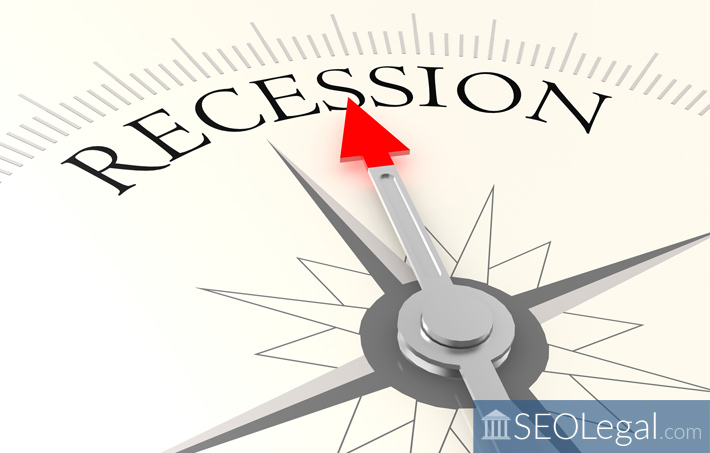The COVID-19 pandemic brought the global economy to a grinding halt. Are law firms recession-proof? While no industry can find complete immunity from periods of economic hardship, some are better positioned than others to ride out the storm.
Here are a few tips for law firms to follow to maximize their chances of survival.
Tip #1: Identify what type of recession it is
Economists group economic downturns into 3 general categories. One of them is U-shaped, where a decline in consumer demand follows the initial downturn, but responds positively to changes in public policy. On the flip side, an L-shaped recession is one where policy changes prove unable to stop the downturn.
Then there is the V-shaped recession, which optimistic observers are hoping the COVID-19 slowdown will turn out to be. It’s one where workers staying at home causes the dip, but as they return to work, the economy quickly establishes its previous upward trajectory.
Tip #2: Be smart in cutting costs
Law practices need to be smart in reviewing what they spend money on. Items like recruiting events or non-essential IT system upgrades are things that can be put off. The available resources need to focus on demand-side stimulus—marketing, business development and other activities that maintain a client base.
How you handle your costs will be impacted by what type of recession you believe we’re in. No one knows this for certain, so be realistic in developing your budget. Prepare alternative budgets for different reasonable scenarios. Then, it’s important that the leadership of a firm do just that—lead. Budget cuts aren’t something to do by consensus. It involves bad news and delivering that is an essential part of being a leader.
The COVID-19 pandemic in particular gives all firms a chance to take a serious look at their commercial real estate budget. If you occupy 2 floors of a building, can you cut that back to 1? If your firm didn’t have remote working prior to the pandemic, you certainly do now. Maybe it’s working better than you thought.
A hybrid approach—half the office in on any given day—might be possible and allow for significant long-term cost reductions. The change not only saves you money, but it enhances employee satisfaction over the long haul. And, if the recession lasts longer than you originally thought and wage reductions become necessary, a contented employee working at home is more likely to stay on.
Tip #3: Keep your vision
Finally, don’t let fear govern how you handle new clients. During a recession, it can be tempting to take any work that shows up at your door. But if a prospective new client doesn’t fit into your overall vision, it’s going to bog you down in the present and be a serious drag on your growth once good economic times return. Don’t lose sight of what kind of firm you want to be.






